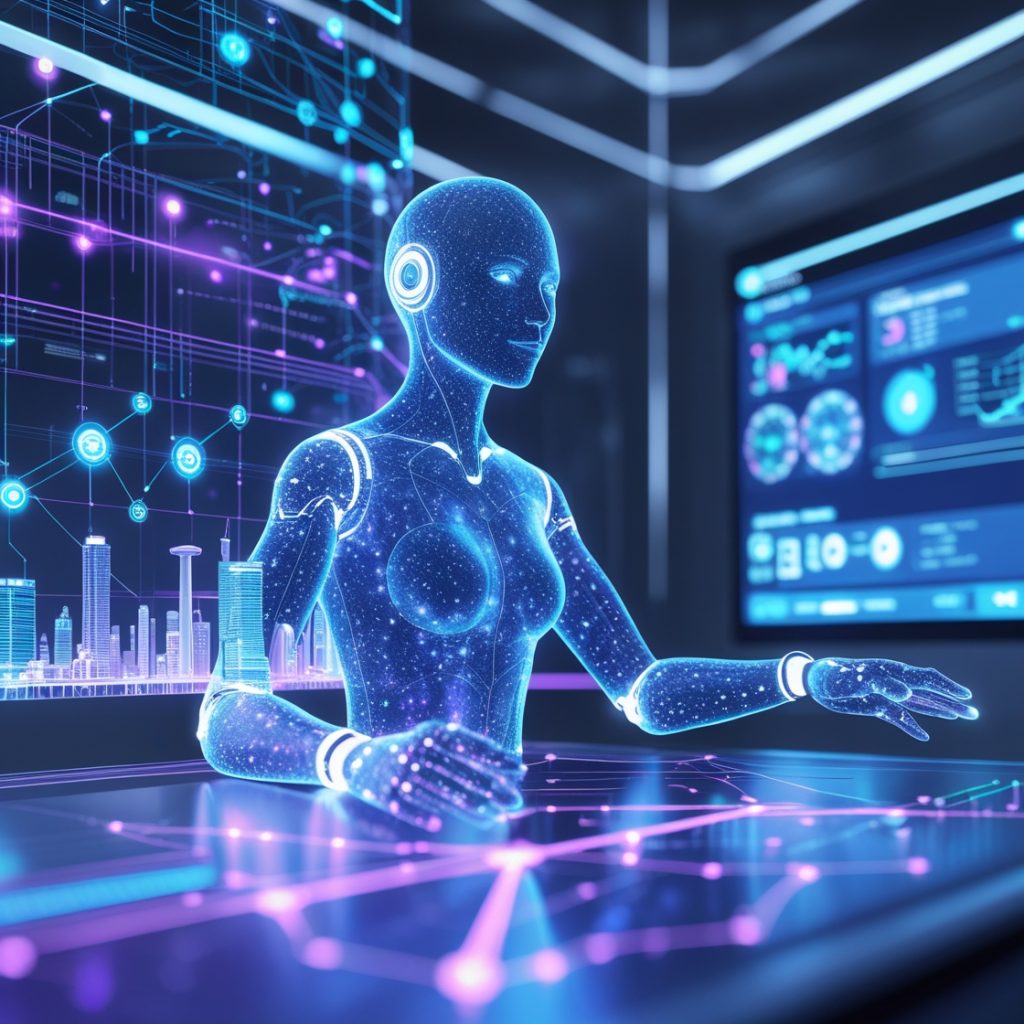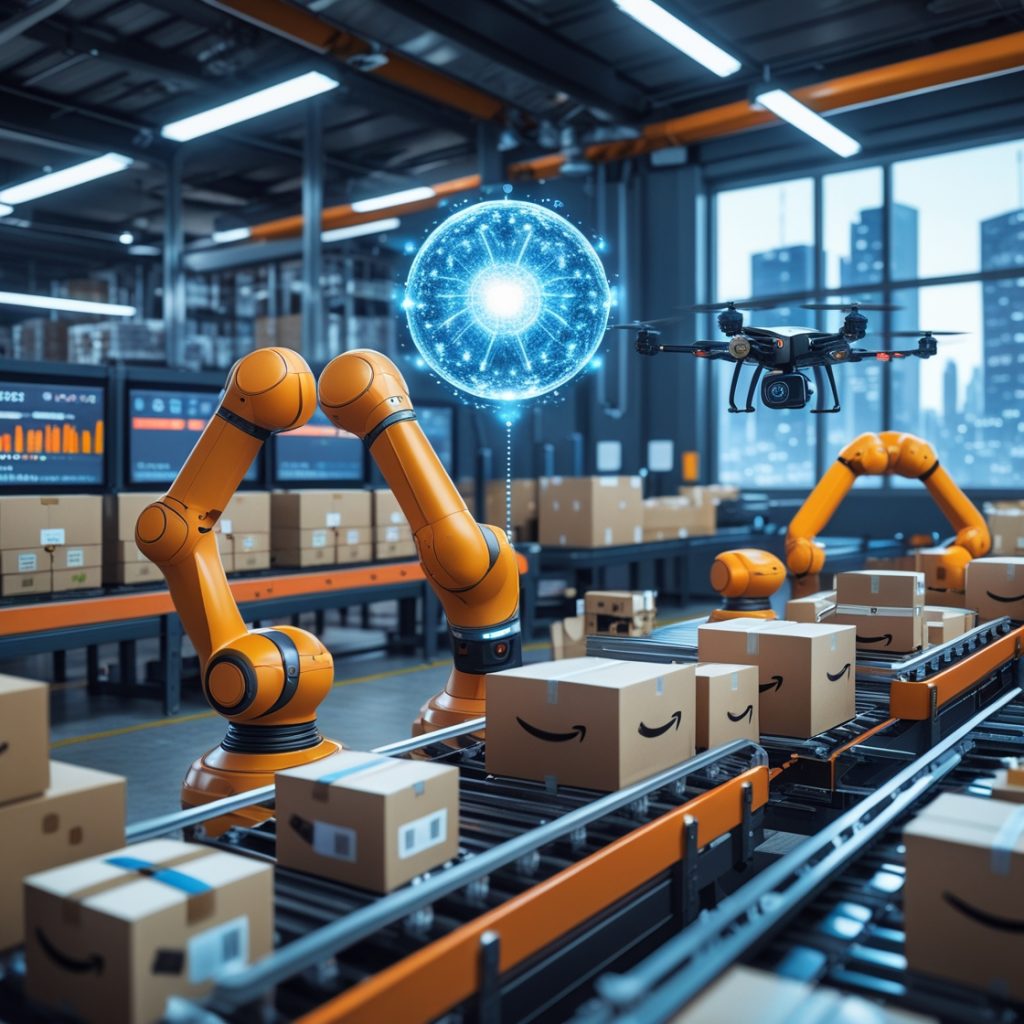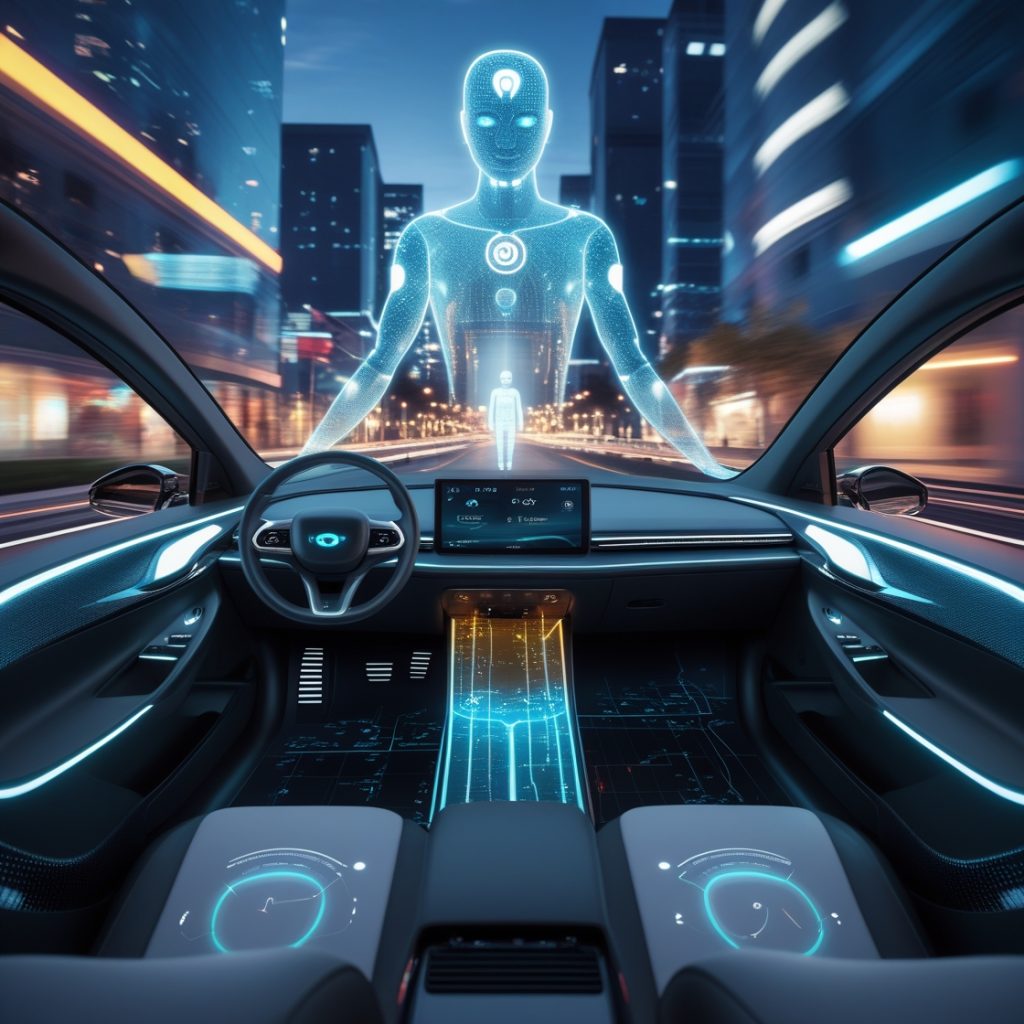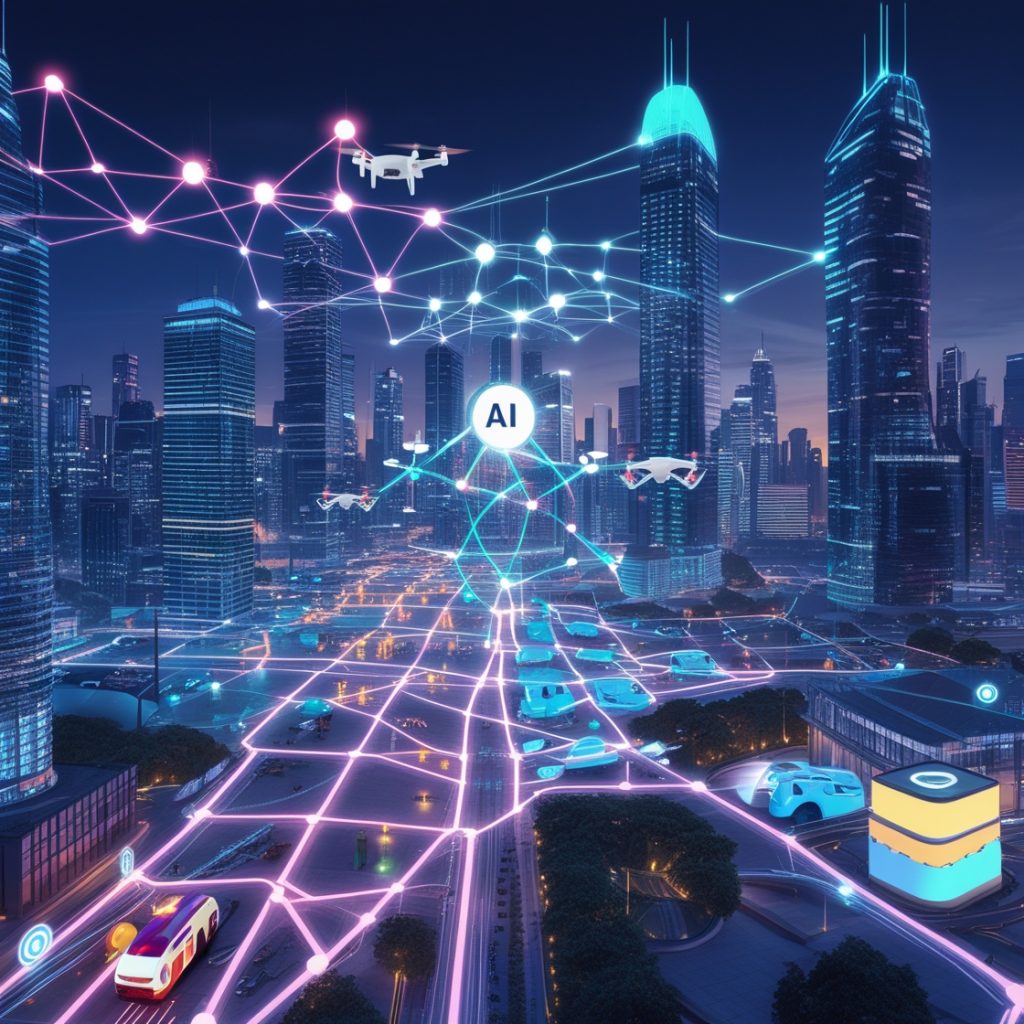Imagine a world where your virtual assistant doesn’t just answer questions but proactively manages your schedule, orders groceries before you run out, and even negotiates deals on your behalf. Or picture a factory where AI independently optimizes production, predicts equipment failures, and coordinates deliveries without human oversight. This isn’t science fiction—it’s the reality of agentic AI, the hottest topic in artificial intelligence today. In this blog, we’ll dive into what agentic AI is, why it’s making waves, how it’s transforming industries, and what challenges lie ahead as we embrace this game-changing technology.

What Is Agentic AI?
Agentic AI refers to intelligent systems that go beyond reacting to commands—they act like independent agents with a sense of purpose. These systems can perceive their environment, make decisions, and take actions to achieve specific goals, all with minimal human intervention. Think of them as super-smart assistants that don’t just follow instructions but figure out the best way to get things done.Unlike traditional AI, which excels at specific tasks like recognizing images or translating text, agentic AI combines multiple skills—think language processing, vision, and decision-making—to tackle complex, real-world problems. It’s like giving AI a brain to think, plan, and adapt, whether it’s running a supply chain or helping doctors diagnose diseases.
Key traits of agentic AI include:
Autonomy: It works without constant human input.
Goal-Driven: It focuses on achieving outcomes, not just following steps.
Multimodal Skills: It handles text, images, and more, all at once.
Adaptability: It learns from its environment to improve over time.
Proactivity: It anticipates needs and acts before being asked.
Why Agentic AI Is the Talk of 2025
As of June 2025, agentic AI is stealing the spotlight for good reason. Recent breakthroughs in AI research—think advanced language models, better reinforcement learning, and seamless integration with IoT devices—have made it possible for machines to take on tasks that once required human judgment. Companies like xAI are leading the charge, building systems that don’t just process data but act on it in meaningful ways.
The buzz around agentic AI comes from its promise to solve real-world problems with unprecedented efficiency. Businesses are adopting it to cut costs, individuals are using it to simplify their lives, and researchers see it as a step toward general intelligence—AI that mimics human reasoning across diverse scenarios. Social media platforms like X are abuzz with discussions about agentic AI’s potential, from revolutionizing healthcare to powering smart cities.

How Agentic AI Is Changing the Game
Let’s explore some of the exciting ways agentic AI is already transforming industries:
1. Business Automation on Steroids
Forget basic chatbots or automated emails. Agentic AI is taking business automation to the next level. In logistics, for example, AI agents monitor inventory, predict demand spikes, and reorder supplies before shortages hit. They analyze market trends, weather data, and even social media sentiment to make decisions that keep operations humming. This means faster deliveries, lower costs, and happier customers.
2. Healthcare Heroes
In hospitals, agentic AI is like a tireless assistant for doctors. It can pull together patient records, scan medical journals, and monitor real-time vitals to suggest diagnoses or treatment plans. Imagine an AI that notices a subtle change in a patient’s heart rate and alerts the team before a crisis hits. It’s saving time and lives by acting proactively.
3. Self-Driving Everything
From cars to drones to warehouse robots, agentic AI is powering autonomous systems that navigate the world with ease. These systems process data from cameras, sensors, and maps to make split-second decisions—whether it’s avoiding a pedestrian or rerouting a delivery drone around a storm. The result? Safer, more efficient transportation and logistics.
4. Customer Service That Feels Human
Tired of clunky chatbots that don’t get it? Agentic AI is changing that. These systems handle customer inquiries with nuance, learning from past interactions to offer personalized solutions. They can even predict when you’re likely to need help and reach out first—think of an AI that texts you about a delayed flight before you check the app.
5. Smart Cities, Smarter Living
Picture a city where AI manages traffic lights to ease congestion, optimizes energy use to cut emissions, and even predicts where maintenance is needed before roads crumble. Agentic AI is making smart cities a reality by coordinating complex systems in real time, creating cleaner, more efficient urban spaces.

The Tech Behind the Magic
So, what makes agentic AI tick? It’s a cocktail of cutting-edge tech:
Multimodal Models:
These AIs process text, images, and audio together, giving them a holistic view of the world. For example, a retail AI might analyze customer reviews, product photos, and sales data to recommend inventory changes.
Reinforcement Learning:
This lets AI learn by trial and error, like a kid figuring out how to ride a bike. It’s key for tasks that need long-term planning, like managing a factory.
Advanced Language Models:
Systems like those built by xAI give AI the ability to understand and generate human-like text, making communication seamless.
IoT Integration:
Agentic AI connects with sensors and devices to gather real-time data, whether it’s a thermostat adjusting your home’s temperature or a drone monitoring a construction site.
Neurosymbolic AI:
This blends data-driven learning with logical reasoning, helping AI handle tricky, ambiguous situations.
The Challenges We Can’t Ignore
Agentic AI is exciting, but it’s not without hurdles. Here’s what’s keeping developers and policymakers up at night:
Ethics and Safety:
When AI makes decisions on its own, who’s responsible if things go wrong? A self-driving car that misjudges a situation or a healthcare AI that misdiagnoses could have serious consequences. Ensuring these systems prioritize safety is critical.

Trust Issues: Many AI systems are hard to understand, even for experts. If we can’t see how an AI made a decision, how do we trust it? Transparent, explainable AI is a must.
Privacy Worries: Agentic AI thrives on data—lots of it. Protecting user privacy while complying with laws like GDPR is a big challenge.
Bias Risks: If the data used to train AI is biased, the AI’s decisions will be too. For example, an AI hiring tool could unfairly favor certain candidates if not carefully designed.
Cost and Access: Building and running agentic AI requires serious computing power, which can be pricey. Smaller businesses might struggle to keep up, creating a digital divide.
What’s Next for Agentic AI?
The future of agentic AI is bright—and a little mind-blowing. Here’s what’s on the horizon:
Collaborative AI Teams: Imagine multiple AI agents working together, like a virtual task force, to tackle big problems—think disaster response or global supply chain coordination.
Hyper-Personalization: From tailored education plans to custom health regimens, agentic AI will make life feel like it’s built just for you.
Tackling Global Issues: AI could optimize renewable energy or manage resources to fight climate change, making the planet greener.
Human-AI Partnerships: Rather than replacing humans, agentic AI will work alongside us, amplifying our creativity and problem-solving skills.

Why You Should Care
Agentic AI isn’t just a tech buzzword—it’s a shift that’s already changing how we work, live, and solve problems. Whether you’re a business owner looking to streamline operations, a consumer wanting smarter tools, or just curious about the future, this technology is worth watching. But with great power comes great responsibility. As agentic AI grows, we’ll need to balance innovation with ethics to ensure it benefits everyone.
So, next time you hear about AI that doesn’t just think but acts, know you’re witnessing the start of something big. Agentic AI is here, and it’s ready to take charge—responsibly, of course.
Copyrights: Dhaka.ai



